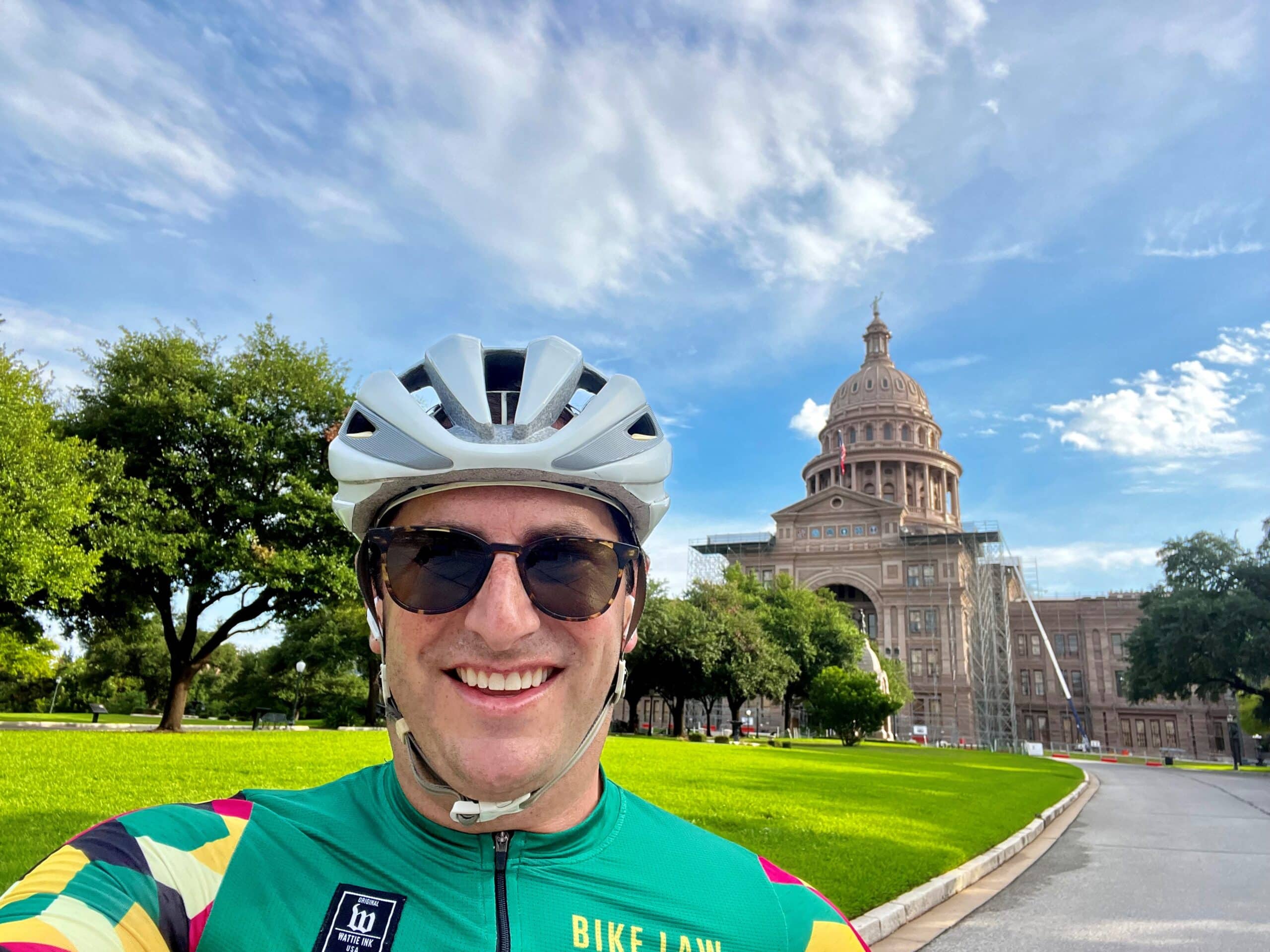Illinois bicycle accident attorney Brendan Kevenides explains the law of event waivers.
As an Illinois attorney who represents injured bicyclists, and who also sponsors cycling clubs, race teams and bike events I love and hate exculpatory agreements. These rights waiving documents can be devastatingly bad for the individual cyclist who has been harmed due to someone else’s negligence. On the other hand, such waivers protect cycling groups who invest time, money and resources in putting together events that bicyclists enjoy.
Generally, an exculpatory agreement is a document in which one party agrees to waive his or her right to seek compensation or sue for injuries caused by the other party’s negligence. Sometimes these agreements are referred to as waivers. Most bicycle race and event organizers require participants to sign such an agreement before hand. Virtually all 50 states have their own set of laws regarding whether and when exculpatory agreements may act as a bar to liability. Here in Illinois our appellate court had the opportunity in 2011 to consider the binding effect of a waiver used widely by USA Cycling, the national governing body for bike racing in the United States.
In Hellweg v. Special Events Management, a cyclist, Brian Hellweg, was injured during a bike race organized by the defendants. The race was to be on a “closed course” held on municipal streets. Mr. Hellweg was injured when he crashed into a nonparticipating cyclist who had wandered onto the course during a warm-up session. He filed a lawsuit against the race organizers alleging they failed to close the course as they had promised. The defendants sought dismissal of the case citing a USA Cycling Event Release Form which Mr. Hellweg had signed. The appellate court upheld dismissal of the case. The Court was unpersuaded by the plaintiff’s argument that the manner in which the crash occurred was not reasonably foreseeable. Though the Court agreed that “foreseeability of a specific danger is” an important factor to consider when assessing the scope of an exculpatory clause, it held that it was not necessary to spell out every conceivable danger for the agreement to be upheld. The Court looked at the language of the agreement which read in pertinent part:
“I ACKNOWLEDGE THAT CYCLING IS AN INHERENTLY DANGEROUS SPORT AND FULLY REALIZE THE DANGERS OF PARTICIPATING IN THIS EVENT, whether as a rider, official, coach, mechanic, volunteer, or otherwise, and FULLY ASSUME THE RISKS ASSOCIATED WITH SUCH PARTICIPATION INCLUDING, by way of example, and not limitation: dangers of collision with pedestrians, vehicles, other riders, and fixed or moving objects; THE RELEASEES’ OWN NEGLIGENCE, the negligence of others; and the possibility of serious physical and/or mental trauma or injury or death associated with the event, I HEREBY WAIVE, RELEASE, DISCHARGE, HOLD HARMLESS, AND PROMISE TO INDEMNIFY AND NOT TO SUE the Releasees and all sponsors, organizers, promoting organizations, property owners, law enforcement agencies, public entities, special districts and properties that are in any manner connected with this event, and their respective agents, officials, and employees through or by which the event will be held, (the foregoing are also collectively deemed to be Releasees), FROM ANY AND ALL RIGHTS AND CLAIMS INCLUDING CLAIMS ARISING FROM THE RELEASEES’ OWN NEGLIGENCE….” (Emphasis in original)
The Court felt that the presence of nonparticipants in bicycle races was an inherent and reasonably foreseeable risk. It also concluded that in any event the language of the agreement clearly contemplated the possibility “of collision with pedestrians, vehicles, other riders, and fixed or moving objects.”
While Hellweg was a clear victory for race and bike event organizers it is important to point out that it does not stand for the proposition that exculpatory agreements will bar liability in all circumstances. They don’t. Waivers do not bar liability for willful and wanton conduct; that is conduct in which one shows a reckless disregard for the safety of others. For example, an organizer who threw ball bearings onto the course during a race would not be protected where his conduct caused injury to a rider. Use of fraud to induce one to sign an exculpatory agreement would also void its protection. The bottom line, however, is that before participating in a race or other bike event requiring a waiver of your rights, understand what you are getting into. If you are injured have an experienced attorney review the waiver language and consider the circumstances of the crash to determine the likelihood that your rights have indeed been waived.







